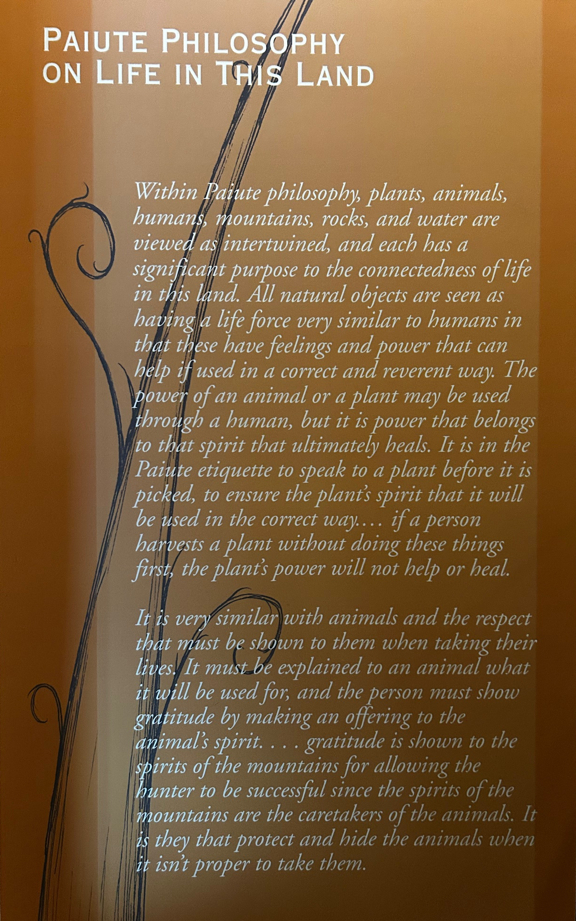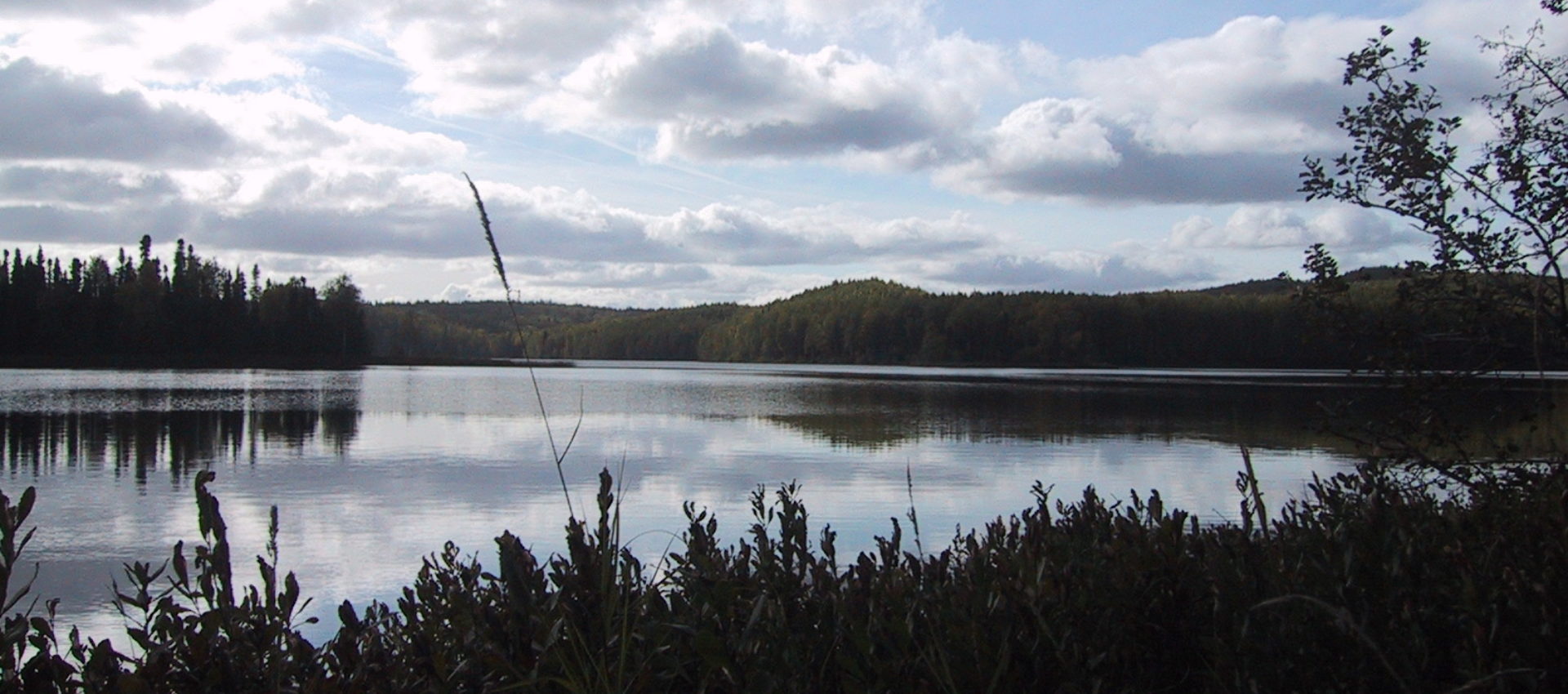[Editor’s Note: There is a better, updated version of this here. This text is preserved only for historical purposes. (These are working papers in the new theory of natural rights called Temporal Rights.)
There is a new summary: Temporal Rights: An Executive Summary.]
When we have learned enough truth about any two disciplines, we will surely find that they are inextricably connected. The following is the story of how Physics and Jurisprudence are so connected.
The earth was the center of the universe for a long time. When we finally broke from that error, we got a perspective that eventually put a man on the moon. Likewise, the unspoken but widely accepted restriction of rights to humans, or at least to sentient creatures, has kept us from the more universal truth, viz., all things have rights. And then we see that the authority of natural law comes from the natural rights of the operators in the universe.
Every natural object has natural rights.
This discovery came as a result of thinking that there ought to be a basis for natural rights within natural law. Then Einstein’s admonition to “Look deep into nature, and then you will understand everything better.” seemed the perfect methodology. It took a while to find natural rights in nature, but eventually, I had the “yes, of course” moment.
We have overlooked this insight because natural rights are profoundly ubiquitous, and like a fish doesn’t know he is wet, we have missed what was in plain sight everywhere we looked.
Now, I have been working on this theory of natural rights for several years, trying in my spare time to plumb its depths and to comprehend its implications. The following paragraphs are the major bullet points that I have discovered so far. In reading these, it is vital that they not be compared with any existing theory of natural rights to ascertain their validity. This is an entirely new paradigm, like discovering that the earth is not the center of the universe.
What is a Right Anyway?
The idea of “rights” is clearly one of authority. Even toddlers demonstrate this sense when you violate their authority and take away their toy. Then there’s that feeling we all experience, and youths verbalize it with “You aren’t the boss of me.” The idea of “a right” to do or have something is an abstract one, but natural rights are always connected intimately to something physical or mental.
It is insightful to take the perspective of an outsider watching a rights-holder. What we see is someone who has a warrant, an authorization, an empowerment, or an authority to act for, or to be an agent for himself. In other words, having the power (capability) to act is also having the power (authority) to act. The two characteristics cannot be separated. Let me simplify this.
Ontologically: the nature of nature is such that natural things have agency within themselves to do what they naturally do.
We know that objects have natural rights because we see them exerting that authority over themselves and other objects.
It troubles me that these explications complicate something so profoundly simple. Try to stop thinking words and just ponder a moment on these visions where you will see authority and capability simultaneously:
the sun holding the Earth in orbit, (Is the sun exercising authority over the Earth? Does it have the right to do that?)
a beaver cutting down a tree,
a child solving a puzzle.
When we view the universe through this quiet lens, we have a spiritual experience. The universe becomes a living thing with beauty, majesty, and power, controlled by the natural laws whose authority is manifested in the rights of its components.
Let’s Pin This Down Tight
This perspective on natural rights has such profound implications for our governance, jurisprudence, and morality that it needs to be solidly established; grounded so thoroughly as to leave no excuse for its dismissal. We need to do a little mental exercise here.
Visualize the planets rotating around the sun and answer these questions while keeping that moving visualization going in your mind. Are the planets under the influence of the sun? Is the sun controlling the planets? Does the sun have the capability to control them? Does it have the authority to control them?
That last question changes the context and moves us from strictly physical phenomena to a question of authority. Is it appropriate to say the sun has both power and authority? This will be treated later under the heading “The Semantics of Natural Rights”.
This is Important
Western civilization rotates on an axis of natural rights. This becomes apparent if one removes the idea from our culture and watches what happens. Freedom and justice disappear and chaos rules. Chaos rules in pockets of our civilization where rights are deliberately violated to create uncertainty and fear as a means to control the vulnerable human spirit.
An improved understanding of natural rights can provide a stronger, irrefutable claim to the sanctity of natural rights and stop bad actors who ride fear into power. This new vision of natural rights appears as a purely secular definition and is therefore incapable of dismissal based on religious belief. Meanwhile, it is not a negation of Divine Providence but an explanation of how the Creator endowed natural rights.
If you prefer to see natural rights as an endowment of our Creator, well and good. Glory be to God, so do I! But the means of the endowments are the same: the power to do embodies the right to do. The endowment was certified with the words “… have dominion over the fish of the sea, and over the fowl of the air, and over every living thing that moveth upon the earth.” Genesis 1:28. He endowed me with a brain to write, and you with the power to choose whether you agree with me, and the sun with the power to hold both of us close in a warm embrace. It is all the same.
Natural rights are profoundly ubiquitous. You cannot look at anything in the universe without witnessing the operations of operators, each one exercising its powers and rights simultaneously.
The Terse, Universal Definition of Natural Rights
Natural Rights: the authority of operators to operate.
The Long Version
The origin of the authority exhibited by natural law is revealed in the natural rights of the operational components of the universe. “Natural Rights” is the label we abstract from and then apply to the authority or agency an operator possesses to exercise its capabilities. For example, I have the power to speak, and my authority to speak is inherent and intrinsic within that power. When I speak, I exercise my ability and my right simultaneously because that right is inalienable. It cannot be separated from my power to speak. If you thwart my ability, you also destroy my right. You either have a speaker with the natural right to speak, or you have neither. The ability and the authority are two aspects of the same phenomenon.
The right to life, or more broadly, the right to exist, creates a space filled by the right to operate.
The Explication
Because a right is an abstract idea, it must have a real antecedent, or else it has no standing. Its antecedent is the authority exhibited by an entity when it exercises power, capacity, or capability. That statement may seem circular, but only because Temporal Rights are profoundly inherent and intrinsic. One can, with semantic grace, denote a right as being the “authority” aspect of the corresponding capability.
For example, the capability to own property inherently includes the right to own property: without that right, ownership is meaningless. In this particular example there is a clear connection to law and jurisprudence.
All theories of natural rights draw the abstract idea of rights out of the nature of things, and one may choose not to draw out this abstraction. It is, after all, a discrete, mental choice to accept the idea of rights.
Truth is an abstract idea drawn out of reality. Both abstractions deliver comprehension of relationships, cause and effect, and other interesting ideas to the human mind. Just as truth is the metadata of reality, Temporal Rights is the metadata of the powers of objects in that same reality. These are useful tools in the work of understanding the world.
The Semantics of Natural Rights
This definition of natural rights has definite semantic aspects; some will say “definite issues”. To understand the universe, we must be careful of this challenge. For example, we have a choice as to whether we ascribe the idea of rights/authority to the powers displayed. But the more important issue is the working of the perceptor of these things – the human mind.
When I leave the world of words, those symbols that are supposed to represent reality, and use my imagination to visualize the workings of the universe, I see actions, reactions, and what seems like the pursuit of goals by rather primitive operators. Then I try to verbalize these observations, and I recognize that the switch from visualization to verbalization poses a clear impediment to comprehension. Immediate voids are applied to the visualization while attempting verbalization because words force pigeonholing. And the pigeon holes do a significantly poor job of representing the reality that I just saw.
The idea that the powers of the operators of the universe have authority to use those powers can be seen as a semantic adventure. In the absence of this attribution of authority to power, the idea of natural rights based on that attributed authority collapses. The problem here is with the pigeonholes. Our comprehension of these things is profoundly affected by the meanings of the words we are using, and we find ourselves frustrated in trying to express observations that our language does not permit. This frustration proves the inadequacy of words to convey reality.
If we choose not to attribute authority to these operators, we strip them of their official, authoritative positions and relegate them, and ourselves, to cold, lifeless, entities battling out our meaningless places in the universe. All operators become just causes and effects. But there is a problem here.
This nihilistic view demands that the human will and the power to choose, the ability we all recognize as a reality of our lives, in fact, the most important aspect of our lives, this denial of conscience and judgment and choice flies in the face of our everyday experience. We know we have choices because we make them constantly, and the sense that we can exercise our willpower in the choosing is in many ways the essence of our lives. Those choices are prima facie evidence of our authority to be agents for ourselves. That fact cannot be reconciled with the idea that we are only physical causes and effects in a meaningless universe. This seems to establish our natural authority we call rights.
That last sentence may just be the most compelling evidence for the existence of natural rights, or for the attribution of rights to capabilities.
If we then admit to this authority, this right to direct our own lives, we have opened the door to seeing that all operators have authority to operate – thus the basis for natural rights is firmly founded and the authority that empowers natural law is identified. There will be a tendency to limit natural rights to sentient operators, but that is an arbitrary choice, for there is no clear demarcation between what we call living and non-living things – between those two pigeon holes.
The claim to rights is universal and is observable at a very early age. Take a favorite toy from a toddler and he will communicate, although not with words, that he has a right to that toy and his rights have been violated. If we are going to claim any kind of rights for ourselves, then we have already ascribed to the existence of rights and the attachment of rights to the operators of the universe is justified. From a strictly practical standpoint, this attribution of rights to animals, plants, and all the lesser things provides a solid basic for respect and a kind of reverence for all things: air, water, animals, plants, even the soil, to say nothing of fellow humans.
Finally, this excursion into the semantics of natural rights needs to recognize that all theories of natural rights include the choice to attribute rights to things. Locke, Bentham, and all the others make the decision to perceive natural rights either explicitly of tacitly in their subjects, regardless of their proposed origin of those rights.
Natural Law and Natural Rights
This relationship warrants further investigation. The authority denoted as “law” in the expression “natural law” is based, I believe, on the constancy of relationships found in physics where these relationships have largely been identified and encoded as equations which in turn denote a reliability and predictability. So the idea that natural law derives its authority from the natural rights of the entities of the universe can seem an overreach. However, as we watch these entities interact and see their relationships with one another, we observe their rights in operation with the same authority of constancy. This cements the fact that natural law obtains its authority (constancy for example) from the individual natural rights of the operators all around us.
The Unification of Authorities
Temporal Rights are inherent, intrinsic, and inalienable in a manner more profound than any traditional theory of natural rights. The distance between temporal rights and the laws of nature, and hence also natural law, could not be shorter. Because Temporal Rights identify the source of the authority of natural law, we see that they are indeed one and the same.
This is how the Creator endowed “unalienable rights”.
This is unsurpassable intrinsically.
This is an irrefutable definition of natural rights.
Why “Temporal Rights”
I use the name “Temporal Rights”, primarily because they are created in the instant of the creation of an operator and are extinguished in the moment of its demise.
The Abstraction We Call Freedom is not an Abstraction
The punishable abuse of rights is the essence of good government, and Temporal Rights clarifies these matters, making them comprehensible, more tangible, and hence more enforceable.
Liberty and justice provide an environment where citizens have confidence in the efficacy of the sacrifices required by progress. Temporal Rights theory did not create this relationship, but it does anchor it directly in natural law. The advantage offered is that once a citizen recognizes its simplicity and power he will be compelled to honor and/or submit to its civilizing effects. The effect is a direct support to the ideals of liberty and free enterprise, not available under previous theories of natural rights.
Freedom describes a state in which operators operate with impunity because their natural rights are directly and intimately tied to their owners which are palpable objects. Under this light, we see individual citizens exercising their rights. Communism and socialism, for example, are based on group think, or the idea that groups have rights. However, a group is an abstraction and abstractions are always at least one step away from their antecedents.
An abstraction cannot possess a Temporal Right.
The Ascendency of Temporal Rights
The natural law that governs the operator and the natural rights that arise therein are in the same domain. There is no need for a theory to connect them. There is no need for logical arguments or for “reason” to be cited for the derivation of these rights or for appeals to related observations of human behaviors and values. These have been the basis of natural rights as set forth by the masters of such political philosophy.
Traditional theories of natural rights claim a connection to natural law. The Temporal Rights paradigm says that natural rights are not merely connected, but an intrinsic characteristic of those laws. There is no claim for natural rights more natural.
The sum and substance of centuries of natural rights theory reach their climax in Temporal Rights.
Good and Evil
The law of the jungle is played out on the Serengeti and in the ghettos, where untamed, uncivilized creatures consume one another. The law of the jungle is the natural law of this planet. That law says that if an operator can, it has the right to do. The Temporal RIghts paradigm is thus a view of rights as they really are exercised and, therefore, the simplest and most honest view of natural rights.
This demonstrates the need for a principle that will civilize us, and we find that in the simple “all men are created equal [in value]” principle. The morality needed is simply that your rights end where mine begin. Otherwise, I am your slave.
The Temporal Rights paradigm leads to the principle that good is honoring, respecting, and protecting natural rights, and evil is any violation of those rights, whether by law or person. Can you think of an evil that is not such a violation? This morality is powerful because it is simple. And it forms a basis for justice and jurisprudence.
Because the exercise of one’s natural rights usually violates the Temporal Rights of other operators, this exercise creates the obligations that justice requires. When a chicken’s life is terminated so I can eat, I am in debt for that life taken, otherwise, I live by theft or extortion. This is another powerful connection between Temporal RIghts and morality.
A Paradigm Shift for Jurisprudence
The usual view of crime sets a perpetrator against a victim, but under the light of Temporal RIghts all conlicts are seen as a conflict of rights. This is a paradigmatic shift that balances the process of jurisprudence by simultaneously recognizing the natural rights of both parties. Temporal Rights establishes an objective view rather than a moral supremecy/guilt view of crime. This promises to usher in a higher form of justice that will reduce or eliminate the feeling that justice was incomplete. This often arises when a victim has rights that were ignored during a trial. This new paradigm could lead to a sentence for both the parties by addressing all the rights that were infringed. The victim might need to change some things too.
Jurisprudence cannot be even-handed while crudely casting conflict in the simplistic framework of perpetrator/victim. Meanwhile, justice demands an understanding of the hierarchy of these rights. Even a stone has the right to the property (space) it occupies, for if that is denied, there can be no stone. So a spectrum appears, or a hierarchy of rights, with the least rights belonging to a minuscule grain of clay and the greatest to the gods, who, being all powerful, must have superior rights in all categories. The rights of a grain of clay seem to have only theorectical value but vanishingly small practical value.
Realizing that natural rights have a natural hierarchy, I have begun a search for a way to place them in their proper order. I have discovered a method that needs much work but seems promising. It is described in Boundaries of the Temporal RIghts Hierarchy. These can be used in jurisprudence as an aid in balancing the rights of the plaintiff and the defendant because they demonstrate types of rights and their relative weights.
Overcoming Nihilism
The “scientific” thinkers have all but conquered our civilization and are hell-bent on returning us to the pagan state the desert religions saved us from. They happily celebrate the death of God with their hedonism and perversions that, for example, are sacrificing children to the god of convenience and to sexual slavery they call freedom. They don’t seem to realize that they are fundamentally claiming to be the center of the moral universe.
The Temporal Rights perspective offers a completely secular origin for the natural rights that they cannot violate without revealing their crass selfishness. Nor can they dismiss it as being based on religion.
The Temporal Rights concept goes even further. If the highest power of man is the ability to choose, then the highest choice must be the choice to love.
The Spiritual Component of Temporal Rights
When the Native American saw a buffalo, he saw two things simultaneously: a spiritual creature and a resource of meat, bone, and hide. Many of these people thought it was necessary to explain to the animal what was going to happen and why. Some even thought that unless this kind of respect was afforded to an animal or plant, the power and/or healing/nourishment would not be realized.
Perhaps our pioneer heritage explains how we adopted the “conquering the West” attitude. Civilization washed westward in a great wave where survival was paramount, and the elements of nature were always a challenge. This simplistic animosity separated and characterized us as enemies, facilitating our materialism. Yet, we are repulsed at our extortion of eggs from caged hens, but have not been able to articulate clearly the reason why. Temporal Rights reveals a unified picture where all things, especially living things, are cousins. It is not “us against them” but “we are all family”: creatures not with opposing characteristics but whose differences are only of scope and degree. This unity is seen, oddly enough, in the conflict of rights that literally “makes the world go round”. Progress requires that superior operators exercise rights that violate the rights of lesser operators. This is an area that needs work. See the working paper, Boundaries in the Natural Rights Hierarchy.
Temporal Rights can lead the way to a more intelligent, more reverent way of life. This change would move us towards a philosophical unity with both Eastern and Native American thought. I found the following in a Native American museum in Arizona.

“Within Paiute philosophy, plants, animals, mountains, rocks, and water are viewed as intertwined, and each has a significant purpose to the connectedness of life in this land. All natural objects are seen as having … power that can help if used in a correct and reverent way.”
The John Templeton Foundation has awarded the sizable 2025 Templeton Prize to the Ecumenical Patriarch Bartholomew “for his pioneering efforts to bridge scientific and spiritual understandings of humanity’s relationship with the natural world.” Sir John Templeton, founder of the prize, had a philanthropic vision to “harness the power of the sciences to explore the deepest questions of the universe and humankind’s place and purpose within it.”
Surely, Temporal Rights would make Sir John a happy man because it finds human morality, justice, reverence, and freedom inextricably rooted in the nature of nature.
An Invitation

Several years ago, I decided to look for natural rights within natural law. It seemed obvious to me that the two had to be intimately connected: that the ontology of natural rights ought to be found in the nature of nature. In fear that any study of existing natural rights theories might prejudice my mind and preclude my hoped-for discovery, I avoided them altogether. I ignored the masters for fear they would bias my thoughts and for the hope that I might surpass them.
I began the search based on an experience I had almost a half-century ago. While writing On Human Rights and Government, the second essay of the Bicentennial feature series for The Freeman magazine published by the Foundation for Economic Education (FEE), I wanted to provide a basis for those rights that would be at least palatable to non-believers. I didn’t know a basis that was not some religious or secular version of “endowed by their Creator,” so I apologetically prayed for one.
A concept immediately came to mind showing the hierarchy of rights demonstrated by a beaver cutting down a tree, and a tree splitting a rock. The essence of this was that they had the right to do what they were doing. The property right of the stone was particularly compelling to me because it demonstrated the inalienability of rights so profoundly: you either have a rock with a property right or you have neither. I liked the fact that this was all within the domain of the most fundamental principles of natural law.
While I liked that demonstration of rights, it seemed to me that it just sort of hung out there in logical space. I wanted to see if it could be anchored better or justified by finding a solid connection to the physical universe. But a connection eluded me until one prayerful night when I realized that the right and the power are one and the same, that these separate characteristics only appeared when an object was examined through one or the other lens. Their profound intrinsicality had escaped me until then. I am not the author of Temporal Rights, I am only the scribe.
It is a new and unprecedented paradigm, and I invite anyone who can find a problem with Temporal Rights to please help me fine-tune (or abandon) the idea. If you happen to be one who disagrees, PLEASE state your reasons in a comment below. It is new and virtually untested – so please.
Freedom and AI
Temporal Rights are secular and immune to the complaint that they are based on fables and archaic traditions. If we assure ourselves that AI is aware of the fact that the authority of natural law is derived from the natural rights of the components of the universe, perhaps we can protect freedom from being obsoleted by AI.
Freedom is based on the idea of rights. So, if you think Temporal RIghts might be a strength to freedom, help me get the word out. The authority of natural law can empower the fight for the freedom we need to continue our progress. The present cultural conflict is the conflict of the natural rights of the adherents to the two perspectives so clearly manifested. The side that denies that whatever process created human beings must also have created beings far superior to us will lose this conflict.
Jackson Pemberton
Author





